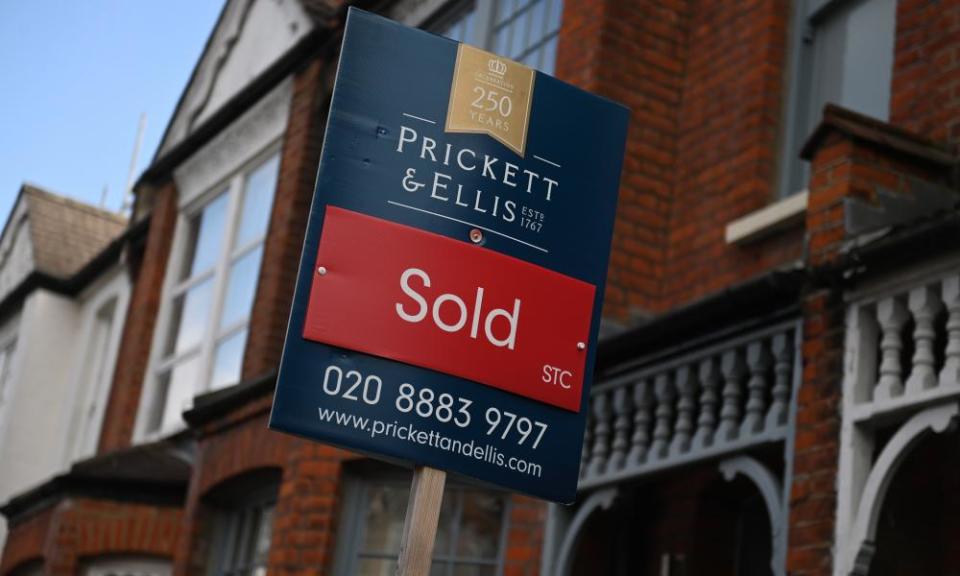UK house prices defy gloom with an average £3,000 rise

Average house prices have risen by nearly £3,000 this month as the property market continues to resist predictions that the UK’s lacklustre economic performance will cause a significant slump during 2023.
Despite low growth and historically high mortgage rates, which have prompted forecasts of a 10% fall in prices this year, the average home is on the market at £365,357 in March, a rise of 0.8% on the previous month.
The increase is below the typical March rise of 1% over the past 20 years but still reflects a market “on a much more stable footing than many anticipated”, according to property website Rightmove, which published the data.
Rightmove said the market was recovering from a spike in borrowing costs at the end of last year, when policies put forward by Liz Truss and her chancellor Kwasi Kwarteng spooked international investors and sent mortgage costs soaring.
Average rates for a five-year fixed deal with a 15% deposit soared to 5.89% in October, shortly after Kwarteng’s doomed “mini-budget”, prompting estate agent Savills to predict a 10% slump in prices during 2023, amid the wider economic malaise.
The rate for the same mortgage deal has since fallen back to 4.65%.
Although this is still well above the 2.48% seen this time last year, estate agent Knight Frank said borrowing costs could fall further, as lenders compete to win business in a less buoyant market.
Central banks have also been tipped to think twice about raising base rates, given turmoil in the banking sector after the collapse of Silicon Valley Bank and the crisis engulfing Credit Suisse.
Inflation has also edged down to 10.1% from a peak of 11.1%, also registered in October last year, while recent economic figures have shown the UK narrowly averting a recession.
The improved economic environment drove up house prices in March, Rightmove said, compared with February, when prices were unchanged.
Underlying factors, such as the UK’s apparent inability to build new homes, are also preventing large price falls.
The rate of new housebuilding is predicted to fall in England, the Home Builders Federation (HBF) has warned, owing to a range of government policies that threaten to slow development dramatically.
The HBF said this would exacerbate the country’s housing crisis and make it harder than at any point in recent history to become a homeowner.
Yet property experts are still predicting an overall price fall during 2023, with mortgage rates and inflation still stubbornly high amid the broader cost of living crisis, coupled with factors specific to the housing market.
“[…] Downwards price pressure will persist as more owners come to the end of fixed-rate deals and supply picks up from the lows of the pandemic,” said Tom Bill, head of UK residential research at Knight Frank.
“We expect a 5% decline this year across the UK.”
The Rightmove data also showed discrepancies, with major variation depending on region and the price bracket of homes hitting the market.
For first-time buyers and “second-steppers”, prices were up by a more modest 0.5% and 0.4% respectively, while homes in the upper price bracket rose by 1.2% to £658,702.
Prices in the north are rising much faster month on month than in London, up 1.1% in the north-west and 2% in the north-east, compared with a fall of 0.1% in the capital.
“It’s Jekyll and Hyde stuff,” said Vince Courtney, chief sales officer of Purplebricks. “The market is performing quite erratically with no clear, consistent national pricing trend. Prices aren’t going to be like this forever, but I think we’re in for another couple of months before they settle down.”

 Yahoo Finance
Yahoo Finance